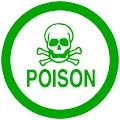 |
| RATING: B*** S*** LIE |
The ANTZ continue to claim that there is "no evidence" that e-cigarettes are safe and/or effective smoking cessation products or safer than smoking. The phrase "scientific evidence" is often used so they can later dismiss any evidence that doesn't fit their definition of "scientific."
"No evidence exists to show they help people quit smoking." - American Cancer Society
"You think e-cigs help you quit real cigarettes. There's no evidence of this." - Kentucky Center for Smoke-free Policy
There is no scientific evidence that e‐cigarettes are safer for consumers than regular tobacco products...Like the “light” and “low tar” cigarettes that tobacco companies claimed were healthier for consumers, there is no evidence to back up the claims made by e‐cigarette makers." - American Lung Association
"...there is no evidence that the electronic cigarette helps smokers to quit smoking." - World Health Organization
ANTZ CHECK:
This lie actually utilizes some of the other lie tactics, such as clever phrasing, but to state that there is "no evidence" is just completely untrue. The ANTZ just choose not to acknowledge or accept much of the evidence based on their own standards and expectations. Many add the word "scientific" in order to "truthfully" ignore evidence which does not come from peer-reviewed research or 20-year-long clinical studies. (Note: No product has ever been required to undergo 20+ years of study in order to be deemed reasonably safe by the FDA.) A bit of Truth Twister lie is used regarding e-cigarettes used as smoking cessation products.
1) In the case of evidence of e-cigarettes being "safe and effective" as a smoking cessation products, the ANTZ completely ignore reports from real consumers. This may have been a valid claim when only a few dozen or a couple hundred smokers reported quitting smoking completely using an e-cigarette, but after nearly 4 years on the U.S. market, thousands upon thousands of smokers are reporting that they have been able to quit using traditional cigarettes - without any reports of serious adverse effects. The ANTZ ignore these reports as "unscientific," because they did not originate from carefully selected test subjects in an unrealistic, clinical environment. However, as the Chantix controversy showed, the real data about a product often comes after a product has been released into real-world environments that have many more variables.
2) Even with the very real evidence from real-life reports, the ANTZ seem to define a smoking cessation product as "effective" only if it results in complete abstinence from nicotine and tobacco. However, according to the CASAA E-cigarette User Survey, 79.6% of respondents did not even purchase their e-cigarette for that purpose! Nearly 65% expected the e-cigarette to allow them to continue to have a "smoking" experience, but with reduced health risks. Just 16.5% stated they would be likely to attempt to quit "cold turkey" or use another nicotine cessation product if they did not have access to e-cigarettes. For most e-cigarette consumers, "effective" is defined as "no longer smoking traditional cigarettes," not "complete nicotine abstinence." Therefore, it makes no sense to insist that these products provide evidence that they work the same as pharmaceutical nicotine cessation products, because that is not the intended purpose of the product nor is it the reason that most smokers buy them.
3) The American Cancer Society website states, "What in cigarette smoke is harmful? Cigarette smoke is a complex mixture of chemicals produced by the burning of tobacco and its additives. The smoke is made up of more than 4,000 chemicals, including over 60 known to cause cancer. Some of these substances cause heart and lung diseases, and all of them can be deadly...Cigarette smoke also contains tar and the poison gases carbon monoxide and nitrogen oxide." The often-quoted FDA report provided authoritative evidence that the e-cigarettes tested either did not contain most of the chemicals found in cigarette smoke and/or the very few chemicals they did find were at barely detectable levels. These results have been reproduced in subsequent tests. How is that not "scientific evidence" that e-cigarettes couldn't possibly have the same health risks as smoking? You would have a hard time convincing people that if you have one product that contains a lot of "dangerous stuff" and an alternative product that doesn't contain most of that "dangerous stuff," but instead contains mostly "safe stuff," that the latter wouldn't be "less dangerous" or "safer" than the former. It's called "common sense."
4) Below are some of the studies and tests that provide "scientific evidence" about e-cigarettes that the ANTZ insist don't exist. Note that some of these small studies/tests were publicized as being sufficient "evidence" to conclude that e-cigarettes were likely dangerous to the public, even though the similar studies/tests that failed to show any reason to suspect e-cigarettes would pose any health risks are dismissed as inconclusive or accused of being biased:
Effect of an electronic nicotine delivery device (e cigarette) on desire to smoke and withdrawal, user preferences and nicotine delivery: randomised cross-over trial. (2010)
Safety Assessment of Electronic Cigarettes in Smokers. (2011)
Smoking Cessation with E-Cigarettes in Smokers with a Documented History of Depression and Recurring Relapses (2011)
A Clinical Laboratory Model for Evaluating the Acute Effects of Electronic "Cigarettes": Nicotine Delivery Profile and Cardiovascular and Subjective Effects (2010)
Electronic nicotine delivery devices: ineffective nicotine delivery and craving suppression after acute administration. (2010)
Comparison of vapor components to cigarette smoke toxicants (2009)
NJoy Study of TSNAs in Njoy Electronic Cigarette Vapor (2009)
Analysis of Components from Gamucci Electronic Cigarette Cartridges, Tobacco Flavour Regular Smoking Liquid. (2009)
Totally Wicked E-Liquid, Scientific Analysis Laboratories (2009)
Characterization of Liquid "Smoke Juice" for Electronic Cigarettes prepared for Johnson Creek Enterprises by Alliance Technologies, LLC (2009)
FDA Final Report "Evaluation of e-cigarettes" (2009)
(Those are just some of the tests and clinical studies that exist about e-cigarettes. CASAA posts research and tests as they become available to the public at: http://casaa.org/Electronic_Cigarettes.html)
CONCLUSION:
The claim that there is "no evidence" or "no scientific evidence" available about e-cigarettes is obviously completely false. I rate this lie to be a complete B*** S*** Lie.
ANTZ Check Lie icons:
 A Toxic Shocker: Using negative comparisons and analogy to make something sound more dangerous than it really is. Often uses scary-sounding chemical names.
A Toxic Shocker: Using negative comparisons and analogy to make something sound more dangerous than it really is. Often uses scary-sounding chemical names.
A B*** S*** Lie: Absolutely untrue, no evidence whatsoever to support the claim.

A Truth Twister: Presenting facts in such a way that something that could just as easily be seen as positive is presented only as negative or a careful use of specific words to change the focus of a discussion.
 An Ego Booster: Relying on an authoritative or respected reputation to give the impression that an opinion or theory is a known fact. You must believe what they say solely because they are someone "important."
An Ego Booster: Relying on an authoritative or respected reputation to give the impression that an opinion or theory is a known fact. You must believe what they say solely because they are someone "important."NEXT...ANTZ CHECK #5: E-cigarettes will lead to smoking
No comments:
Post a Comment